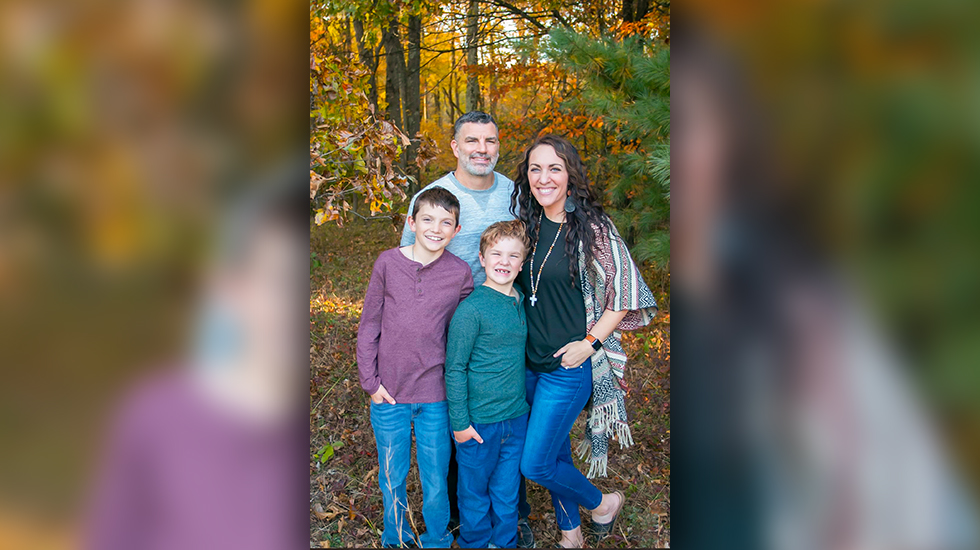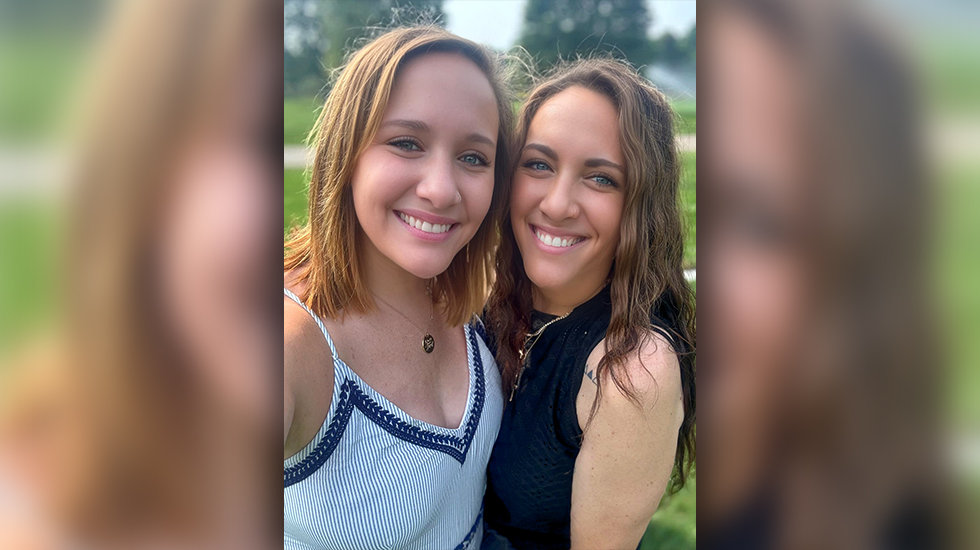


Inherited traits, or genetics, play a very important part in determining what we may face in life. Individuals with a BRCA gene mutation, for example, carry a 45-85% chance of developing breast cancer at some point in their lives.
We recently spoke with Danielle, whose immediate and extended family has been affected by breast cancer and BRCA gene mutations. She shared with us how her knowledge of her family history and genetic testing may have saved her life.
Danielle’s grandfather was diagnosed with male breast cancer and eventually passed away from the disease. Danielle recalls, “I lost my grandfather to breast cancer when I was a teenager. His passing was devastating because he was one of my favorite people in the world. At the time, I had no idea that men could even get breast cancer, which made his diagnosis even more shocking. He underwent a mastectomy, and I remember being so confused as to how he could have been diagnosed with a disease I had only associated with women.”
Danielle’s grandfather had a sister who also passed away from breast cancer. Then, Danielle’s twin sister, Ashley, was diagnosed in 2018, leading the sisters to pursue genetic testing to look for a breast cancer gene mutation.
“After discovering a lump, Ashley went to her doctor, which led to a mammogram where they found dense breast tissue,” Danielle shares. “This was followed by a biopsy and genetic testing, which confirmed she had Stage 2 breast cancer. Given our close genetic link, her doctor strongly recommended that I undergo testing as well.”

Danielle shares that her genetic testing experience was “straightforward.” She says, “I had blood work done, and once the results came in, I met with a genetic counselor. They explained in great detail what the BRCA gene mutation meant, how it increased my risk of breast and other cancers, and what proactive steps I could take.”
Danielle and her twin sister, Ashley, both tested positive for a BRCA gene mutation at 32 years old. Once Danielle tested positive, she underwent further testing, including a mammogram and a biopsy. The biopsy confirmed that Danielle had already developed ductal carcinoma in situ (DCIS), an early-stage breast cancer.
For treatment, Danielle shares, “I underwent a complete mastectomy followed by reconstruction surgery. In total, I had two or three additional reconstructive procedures. During my initial surgery, they also removed several lymph nodes to ensure the cancer had not spread.” Because a BRCA gene mutation increases the risk of ovarian as well as breast cancer, Danielle also decided to have a hysterectomy (surgical removal of the female reproductive organs) as a further preventative measure.
Based on her personal and family experience, Danielle has advice for anyone considering testing: “If you have a family history of breast cancer, I strongly encourage you to get genetic testing. It can be life-saving,” Danielle says. “Most women don’t start getting mammograms until age 40, so without genetic testing, my cancer could have gone undetected for years. By the time I would have had my first routine mammogram [at age 40], it might have been too late. Genetic testing allowed me to be proactive and take control of my health.”
Danielle also recommends finding a strong support system: “Lean on your tribe. If you don’t have one, find one. Support is everything. I joined support groups and connected with others going through similar experiences, which made a world of difference. You don’t have to go through this alone.”
National Breast Cancer Foundation is here for you as you navigate a breast cancer diagnosis. Visit our website to learn about NBCF breast cancer support groups, obtain free educational resources, or find a patient navigator in your area.
The information in this blog post is not intended as medical advice and reflects Danielle’s personal experience and opinion. Always consult with your care team about options and decisions regarding your healthcare.
Donations are always appreciated, but there are lots of great ways to get involved.


Jonathan,
Would you be willing to be one of the panelists on Improving Breast Cancer Research, Detection and Treatment under the Your Health, Your Voice lunch and learn series on October 31, 2025 from 12-1:15? This session is sponsored by North Carolina Central University Center, Health Disparities Research (RCMI). We would have a 30 minute practice session prior to the actual session. Thank you.